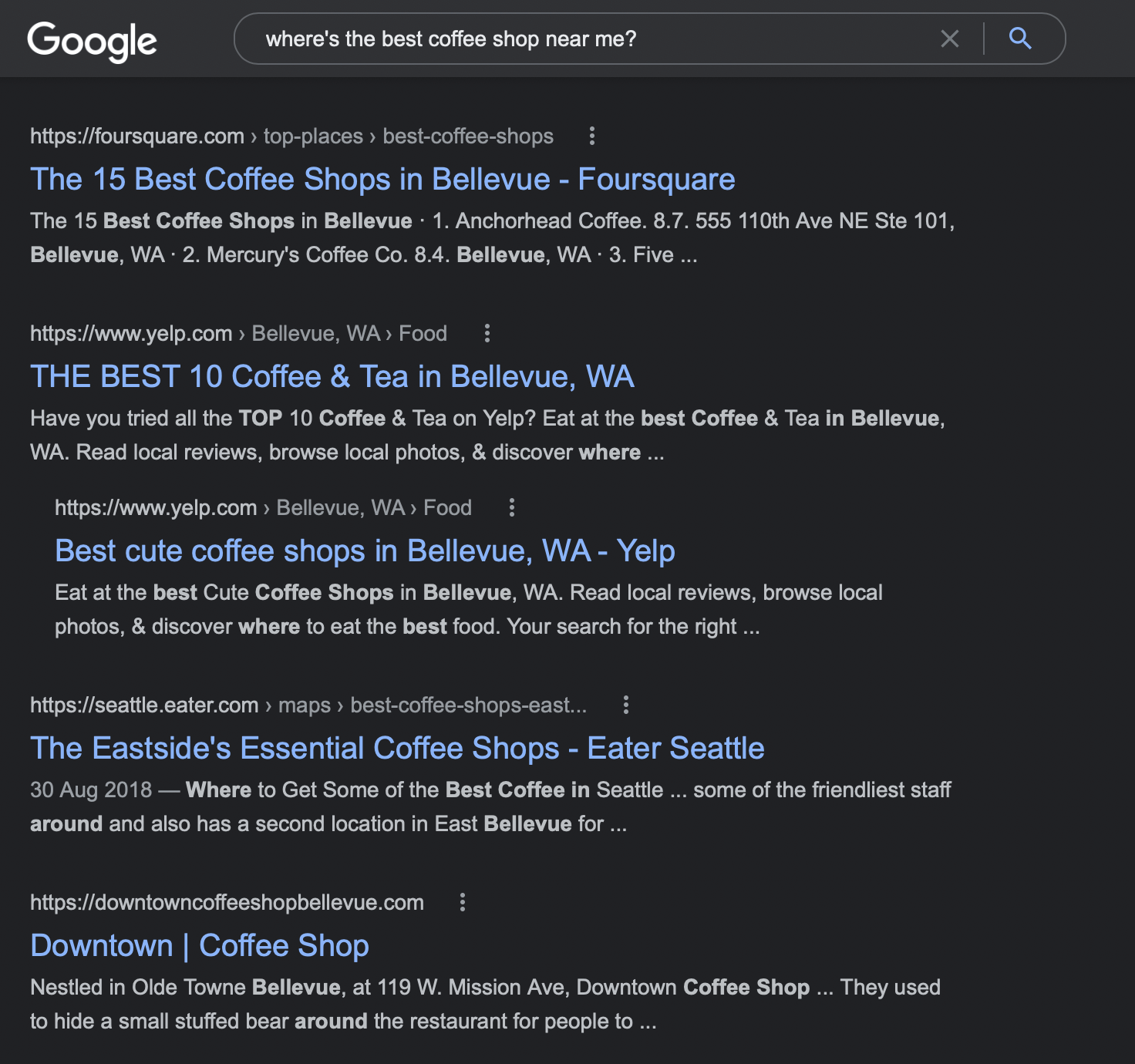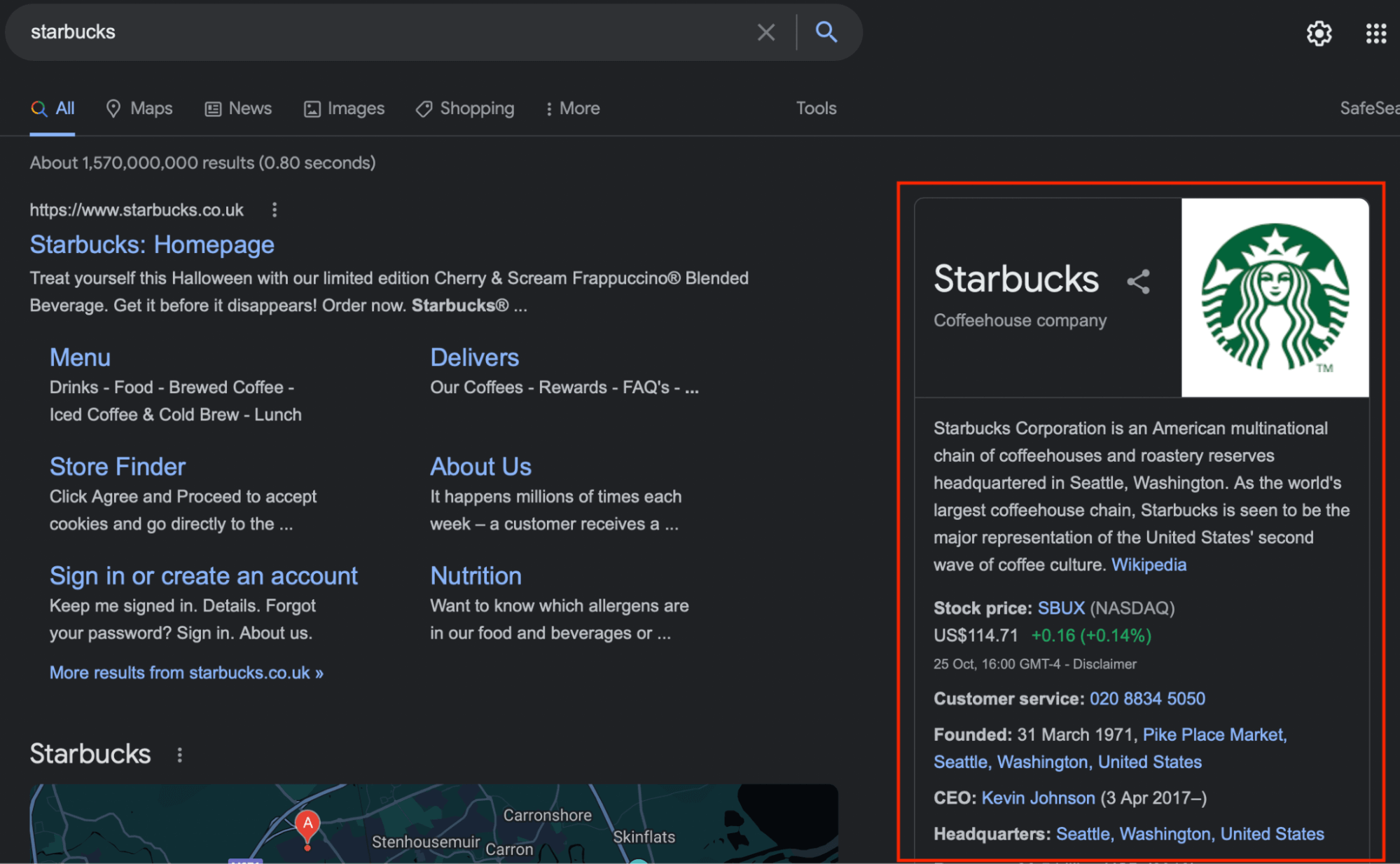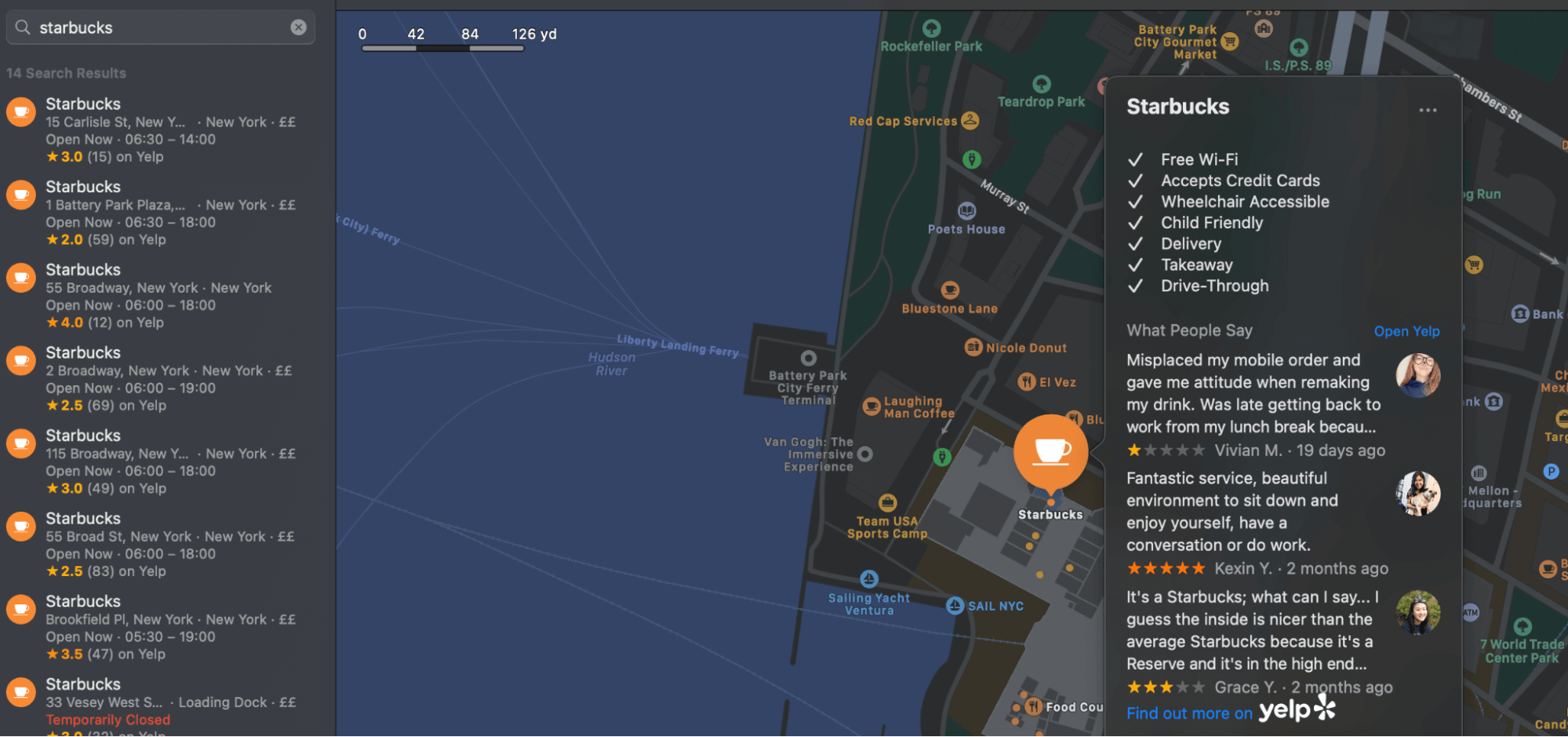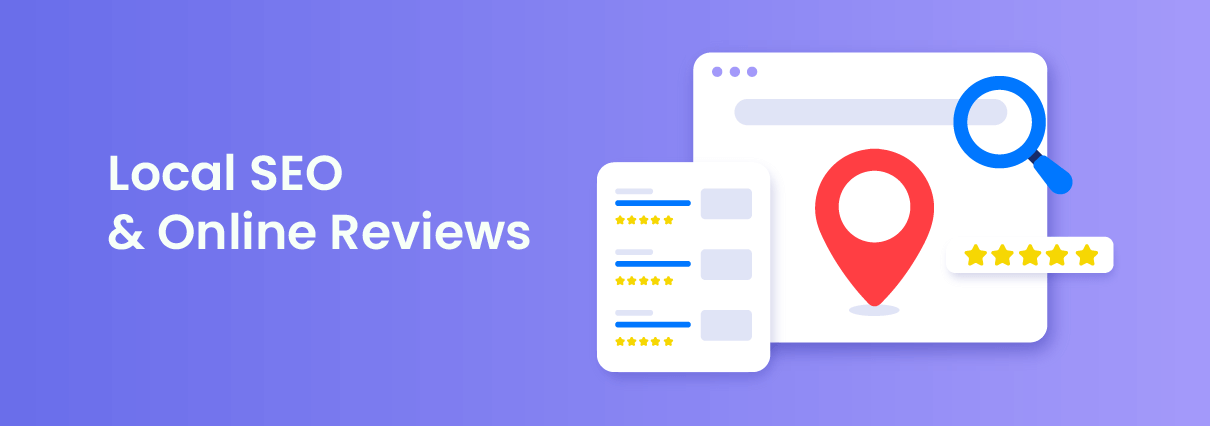Local search engine optimization (SEO) is all about optimizing your business website for local searches. In other words, you are trying to rank for the searches around your locality, town, or city. Most people who look for products and services online often search for businesses that are within their locality. So customers are more likely to do business with stores or brands that show up first on search engines.
That said, local SEO is unique in that search engines like Google use different sets of ranking factors to display search results. That’s why if you randomly type keywords such as “coffee shop” or “grocery store,” Google will display or suggest businesses within your area.
Here’s a quick breakdown of the local SEO ranking factors to guide you as you optimize your WordPress website and Google my business reviews.
Local SEO Ranking Factors
Local SEO uses geo qualifiers to better match users to their location-sensitive queries, such as ‘near me’ or ‘nearby’.

Local SEO has grown considerably over the last few years, and it covers everything from keyword research, Map Pack ranking, and local organic ranking, to off-page SEO. Here, you can still go into the finer details to optimize for local voice searchers while maximizing Google and Yelp suggestions. All these aspects matter, but you always want first to pay attention to the major ranking factors. Here are some of them:
Google My Business Profile
Google My Business (GMB) is the holy grail of local SEO of WordPress website. Here, consistency is key, so you always want to match all the details on your GMB profile with those on your business website. Similarly, all the business details across the web, whether on social media or other websites, should match. These include your business name, physical address, phone number, opening and closing hours, directions, etc.

That said, consistency narrows down to the finer details; for example, if you list your address using “Avenue” or “street,” always stick to this formatting. Avoid mixing it up with abbreviations like “Ave.,” or “St.” This confuses the Google algorithm and may have a negative impact when ranking your GMB profile.
Last but not least is to fill in every data you can until your profile is 100% complete. How you fill in the profile also matters. You want to strategically use keywords in sections such as category, services, and business description. Also, keep every crucial piece of data updated and always be honest. Do not list products or services you don’t offer and be keen to update if closed during holidays or special events to avoid misleading customers.
Online Reviews
According to a recent study by Moz, Google reviews were the second most important ranking factor impacting local search results, i.e., just after GMB elements. However, bad reviews were shown to hurt local SEO of your WordPress website, while genuine and positive reviews were linked to higher rankings.

Another important takeaway is that a business owner’s response to the reviews can help build trust with consumers. So, responding to negative and positive reviews and engaging customers is key to ranking for local searches. That also means knowing how to ask for reviews without being a turn-off is quite crucial in today’s business landscape.
The key to success is to first work on your customer experience, partly by polishing your offerings and learning how to connect emphatically with distressed customers. Knowing when and how to ask for feedback will also boost your odds of getting quality reviews.
Name, Address, and Phone Number (NAP) Citations
Google and other search engines use NAP citations to confirm that your business information is correct. When these citations appear in various places across the internet; Google will confirm and verify your business info. So, having consistent NAPs on several reputed websites will make your WordPress website more trustworthy and visible to prospects and customers.
Other Local SEO Factors to Consider
Besides focusing on GMB profiles, online reviews, and NAP citations, you also want to focus on local keyword research, content strategy, and link building. Typically, all the other aspects of SEO will apply, and you may need to break them down into on-page and off-page SEO.
Using relevant images and videos and creating valuable content for local users is a great way to attract their attention. You will also have to prioritize site experience by working on-site speed and navigation. Additionally, optimize your site for mobile to boost conversion and retention.
And regardless of the business type, you can choose to go creative by leveraging the power of local SEO WP plugins. Some of these plugins will help you implement schema and structured data on your WordPress site.
Final Thoughts
In today’s digital world, businesses need to evolve and keep up to pace with current market trends. The high level of competition has seen several businesses look for ways to safeguard their competitive advantage. For many, enhancing their Local SEO strategies has helped drive traffic in their region, boosting conversion and revenue.
So to succeed in local SEO, you want to mix and match the strategies we’ve highlighted above until you find what works best for your WordPress Website. But first, work on your GMB profile, manage your online reviews, and ensure consistency with your NAP citations.
Read more:
